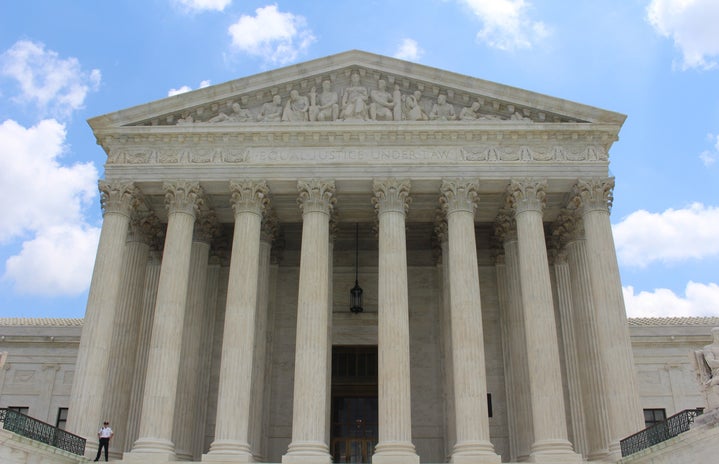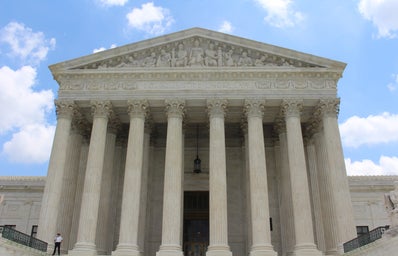In January, Supreme Court Justice Stephen Breyer announced he was ready to retire at age 83. Justice Breyer was one of the three remaining liberal judges on the Supreme Court. Therefore, Democratic President Biden began to look for a liberal candidate to fulfill the position. But President Biden wanted to make a lasting impression with his nomination and took it a step further: he nominated a liberal Black woman to the Court.
Following Breyer’s retirement announcement, President Joe Biden reiterated his presidential campaign promise to nominate a Black woman to the United States Supreme Court should a position open up.
There has never been a Black woman nominated to serve as a Justice on the Supreme Court before today.
Biden’s promise to nominate a Black woman to the U.S. Supreme Court would be glass ceiling shattering. There has never been a Black woman nominated to serve as a Justice on the Supreme Court before today.
On Feb. 25, President Biden announced that Kentanji Brown Jackson is his official nominee to replace Justice Breyer on the Supreme Court.
“For too long, our government, our courts, haven’t looked like America. I believe it’s time that we have a court that reflects the full talents and greatness of our nation with a nominee of extraordinary qualifications and that we inspire all young people to believe that they can one day serve their country at the highest level,” Biden said in his statement.
Who is Kentanji Brown Jackson?
Nominee Jackson was born in Washington D.C., a place that has defined her career. However, she grew up in Miami, Florida. According to whitehouse.gov, both of her parents attended segregated schools in the Jim Crow Era before becoming public school teachers in Miami. Whitehouse.gov also shared a story from nominee Jackson’s childhood, where a high school counselor told her “not to set her goals too high” when she applied to Harvard. Four years later, she graduated magna cum laude from Harvard University. She graduated cum laude from Harvard Law School and was an editor of the Harvard Law Review during her school years.
What are Kentanji Brown Jackson’s qualifications?
Nominee Jackson’s first experiences with the legal career field included her being a law clerk to Judge Patti B. Saris, Judge Bruce M. Selya of the U.S. Court of Appeals for the First Circuit and most significantly, clerked for Justice Stephen Breyer of the Supreme Court. She was a law clerk for the Supreme Court Justice she might very soon replace.
Then she served as a public defender. During this time, she worked as a criminal defense attorney for those who could not afford a lawyer. If she is appointed, she will become the first public defender to ever serve on the Supreme Court.
Next, the U.S. Senate confirmed nominee Jackson by unanimous consent on Feb. 11, 2010 for Vice Chair of the U.S. Sentencing Commission. Many of her decisions were very liberal as she worked to decrease sentences for cocaine offenses and helped implement the “drug minus two” amendment.
On Sept. 20, 2012, Obama nominated Jackson to serve as a judge for the United States district court for the District of Columbia. Former President Obama also vetted nominee Jackson as a potential Supreme Court nominee during his presidency in early 2016. During her time on the District Court, she made several rulings in contradiction to the Trump administration.
Last year, nominee Jackson was nominated to the United States Court of Appeals for the District of Columbia Circuit.
Following her nomination, Jackson will go through a confirmation process by the U.S. Senate before becoming a Supreme Court Justice.
How is her nomination being received by the public?
The American people controversially accepted this announcement. According to The Hill, the American population is divided by race on Biden’s promise. Approximately 63 percent of Black Americans and only 21 percent of white Americans, as well as 33 percent of Hispanic Americans, said it was extremely important to them personally that a Black woman serves on the Supreme Court.
Want to see more HCFSU? Be sure to like us on Facebook and follow us on Instagram, Twitter, TikTok, YouTube and Pinterest!


